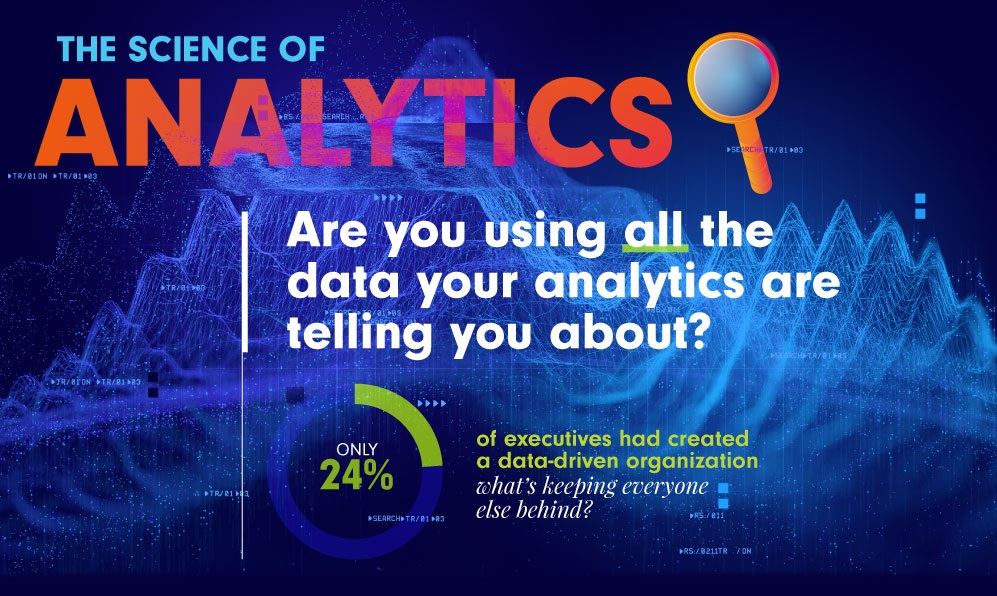Today’s businesses have many tools to collect and store data. Using the data, however, is another subject. Only 24% of executives have been successful in creating a data driven organization. They lead the pack while everyone else trails behind in their dust.
What’s preventing other companies from achieving data-driven status? They could face a variety of issues. Sometimes their data strategy is too ambiguous and unclear to be enacted. Other times, their data is deemed too untrustworthy to use in business decisions. Training, retaining, and hiring data savvy workers is a challenge, especially when companies compete for the same limited talent. These problems and more cause up to 73% of data collected within an enterprise to go unanalyzed. Data without analysis is cost without benefit to businesses.
Done right, data analytics is an enormous asset. Data-driven organizations are 178% more likely to outperform their peers in terms of revenue and profitability. With a solid understanding of purpose, well-developed data processes, and the right tools, data analytics empowers businesses to identify risks and opportunities ahead. They are able to develop effective growth and marketing strategies at the same time new product innovations come alive. Both supplier and customer relationships benefit when data drives a company’s decision making.
On the flip side, poor data quality or analysis can cost a business dearly, leading to an average of $15 million in annual losses. These losses manifest in several ways. Some are missed opportunities or lost productivity while others appear as increased costs and misguided business strategies. Without a clear metric by which to measure progress or success, a company limits internal evaluation capabilities. Without data visualization, sorting through datasets is complex and time consuming. Perhaps worst of all, lacking a central database in use across departments denies workers the ease of collaboration.
Not every company can fix their data problems alone. For those who need the help, Google Analytics 360 is a great tool for organizations seeking the most out of their data. Formerly known as Google Analytics Premium, this service is an add-on data management platform allowing more data quality control. Some features and benefits include advanced tools, enterprise support, delays capped at 4 hours, and time-saving imports of both first and third party data. The company with the most to gain from Google Analytics 360 is constantly running sampling in a large data volume. They make hourly or daily marketing decisions based on current data trends. They already use Google products and want integration on their data platform.
One other detail to remember about Google Analytics 360 is that they are partner-first. Collaboration with an expert team comes with the service’s license. Choosing an analytics partner requires many considerations, but the most important thing is confirming their technical expertise. Not every company has the same needs, and there needs to be a match between the company and their analytics partner. If your company is ready to dive into its treasure trove of data, it makes sense to get an experienced partner to help get you started.

Source: InfoTrust


